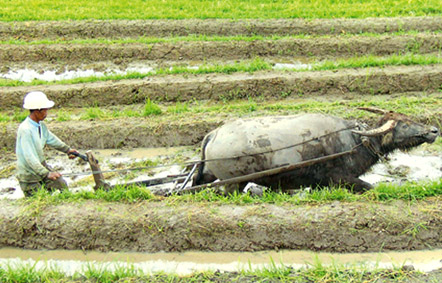Living standards not eased by higher export prices -UNCTAD experts
Ways must be found for poor nations to retain more of the value
derived from the farm goods and natural resources that are the mainstays
of many of their economies, experts at the third Global Commodities
Forum, hosted by UNCTAD said.
 Speakers
said that despite a decade's worth of oscillating but largely rising
prices, the so-called commodity dependent developing countries (CDDCs) -
countries whose commodities exports represent more than 60 percent of
their merchandise exports - have been unable to use the higher profits
earned from exports to diversify their economies and broadly raise
living standards. Speakers
said that despite a decade's worth of oscillating but largely rising
prices, the so-called commodity dependent developing countries (CDDCs) -
countries whose commodities exports represent more than 60 percent of
their merchandise exports - have been unable to use the higher profits
earned from exports to diversify their economies and broadly raise
living standards.
The Forum was based on 'Harnessing development gains from commodities
production and trade'.
UNCTAD Secretary-General Supachai Panitchpakdi, opening the meeting,
said: "There has been ongoing debate on diversification for CDDCs.
From 2002-2010, the number of CDDCs increased from 85 to 91. While we
have been trying to find ways to advise countries to be less commodity
dependent, CDDCs have actually become more heavily dependent on
commodities exports, and the number of countries that are dependent has
increased."
The issue is how to use the benefits that come from higher prices so
that they serve "long-term development purposes", he said.
Royalties and wages earned by developing countries from commodities
frequently are only a small portion of the final sales prices of the
finished goods made from them. The bulk of the profits accrues overseas.
Supachai said the mining of natural resources in developing
countries, for example, often results in "enclave economies" that do not
generate broad economic spillover benefits for the host nations.
Ways should be found "to spawn wider economic activities" coming from
mining, he said, so that more of the upgrading of these natural
resources occurs domestically, creating jobs - and jobs that pay higher
wages.
Vice President of the UNCTAD Trade and Development Board, Ibrahim Al-Adoofi
told the meeting that the Forum is part of broad efforts preparing the
way for the UNCTAD XIII quadrennial conference to be held in Doha from
April 21-26 2012. The theme of the Forum reflects the theme of UNCTAD
XIII, which is "development-centred globalization". "New developments in
the global economy have exposed the limitations in our current
development model," Al-Adoofi said. "It is necessary to steer
commodities development efforts in new directions."
Director of the Agricultural and Commodities Division of the World
Trade Organisation (WTO) Clem Boonekamp said commodities trade is
directly connected to the issue of food security - "a fundamental
responsibility of all of us.
The irony is that almost a billion people a day go to bed hungry, yet
there is enough food. There are a number of problems that get in the
way".
While not the solution in itself, trade must be part of a
comprehensive effort to ensure food security, he said. Negotiations at
WTO, including those under the Doha Round, are part of an effort to
"level the playing field" for trade in farm goods, he said, so that the
system is efficient and food is able to move smoothly from where it is
grown to where it is needed.
One challenge "is trade-distorting domestic subsidies" for
agriculture in developed nations that enable farmers there to "outcompete"
farmers in developing countries who otherwise would produce food that is
price competitive, he said. "This hinders a potential for developing
countries to grow their economies."
David Hallam, Director of the Trade and Markets Division of the Food
and Agriculture Organisation of the United Nations, said "there is
increasing recognition of the importance of the connection of
agricultural markets with other markets", for example with energy
markets, because of climbing biofuel production, and with financial
markets.
"But one thing that has remained constant is the continuing poverty
of many small commodities producers around the world."
The "financialisation" of commodities markets - meaning the
increasing use of such goods as food as an asset class for speculative
investment - was highlighted by several of the morning's speakers.
Supachai said the issue "is not settled yet".
He told the meeting that there is a need to study the matter to
ensure that speculation in commodities "does not result in excessive
movements in prices".
Following the opening plenary, the Forum began a series of more
topical debates, beginning with a review of "recent developments in
international commodities trade - their impacts and implications". |

